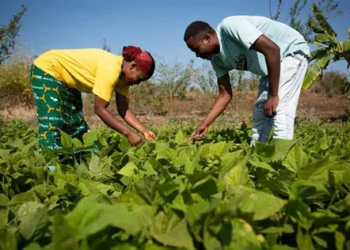OPINION
The e second Africa Climate Summit (ACS2) also known as Africa Climate Week 2025, will commence this week in Addis-Ababa, Ethiopia under the theme, “Accelerating Global Climate Solutions: Financing for Africa’s Resilient and Green Development”. The summit is scheduled to take place from September 8-10, 2025, with pre-summit dialogues from September 4-7. It will convene leaders, policymakers, private sector representatives, Civil societies, youth and academia to showcase Africa-Led solutions and unlock climate finance for the continent’s sustainable future.
It is noted that the ACS2 will highlight proven Africa Led climate solutions and the continent’s bold efforts to re-green its landscapes laying the groundwork to effectively address the impacts of climate change and greener development. This presents a critical opportunity for African leaders to reshape Africa’s energy future.
Africa, despite being immensely rich in renewable resources such as solar, wind, hydropower among others and critical minerals that could power not only its own sustainable development but also the global clean energy future, the continent continues to be disproportionately impacted by climate change, facing escalating extreme weather events which threaten food security and economic development despite minimal contribution to global emissions. Additionally, the continent also grapples with low levels of energy access, with around 750 million people lacking access to electricity and over 2 billion people relying on traditional biomass like charcoal and firewood for cooking according to the International Energy Agency (IEA)
It is unfortunate that the continent responsible for less than 4% of global greenhouse gas emissions, is nonetheless one of the most affected regions experiencing devastating droughts, floods, and raising food insecurity. This shows that the continent’s vulnerability to energy crisis and climate change remains key reminder of the need to evaluate the readiness and preparedness to counter these negative and diverse effects. The quality of life has been reduced given the burden placed by numerous uncoordinated effects on the environment. Famine and poverty are on increase and development is stifled, all these are caused by climate change and the energy crisis.
At the inaugural Africa Climate Summit held in Nairobi, Kenya, in September 2023, African leaders and stakeholders committed to address continents’ climate crisis through fostering a just and inclusive energy transition by supporting renewable energy, developing climate resilient economies and advocating for financial system reforms, however, despite the commitments, the continent still faces disproportionate climate change impacts and energy challenges.
This calls for the urgency for African leaders to not only commit to climate action but to ensure the energy transition is just, inclusive and development-focused and this requires deliberate strategies that balance emissions reductions with the urgent needs of millions still living in energy poverty. So as the ACS2 begins this week, African leaders must seize the moment to position the continent not as a victim of the climate crisis, but as a leader in just and inclusive climate action.
The International Monetary Fund (IMF) report notes that Africa holds a third of the world’s critical minerals such as cobalt and lithium that are essential for renewable energy technologies. Leaders must ensure these resources are not simply exported raw, as has been the case for oil and gas, but instead processed locally to create jobs, boost industrialization, and build stronger economies. By negotiating fair contracts and promoting regional value chains, African countries can prevent a repeat of exploitative extractive models and ensure resource wealth benefits citizens.
Additionally, as the summit provides a platform to demand increased and accessible climate finance, African leaders should push for reforms in global financial systems to ensure that funding for climate action is predictable, transparent, and aligned with national priorities. The summit should encourage the adoption of carbon pricing mechanisms such as carbon taxes to internalize the cost of carbon emissions and drive investments towards low carbon technologies and call for global climate justice, emphasizing the principle of common but differentiated responsibilities. This includes urging developed nations to fulfill their climate finance commitments and support Africa’s energy transition through technology transfer and capacity building.
Additionally, African leaders should strive to foster a spirit of regional cooperation through initiatives like the Africa Renewable Energy Initiative (AREI), aiming to install 300 GW of renewable energy by 2030. This will help African nations to transit towards sustainable and a low carbon future in order to conserve the environment and mitigate climate change
African leaders should advocate for investments in decentralized renewable energy solutions, such as solar mini-grids and off-grid systems, to reach remote and underserved communities. Policies should incentivize the adoption of clean cooking technologies to reduce health risks and environmental degradation.
Lastly, the ACS2 should strengthen commitments to encourage countries to set more ambitious emissions reduction targets and update their National Determined Contribution NDCs to align with 1.5 degrees Celsius global warming.
By Olive Atuhaire,
The writer is a Ugandan Environmentalist – AFIEGO
Email: atuhaireolivia72.ao@gmail.com








































